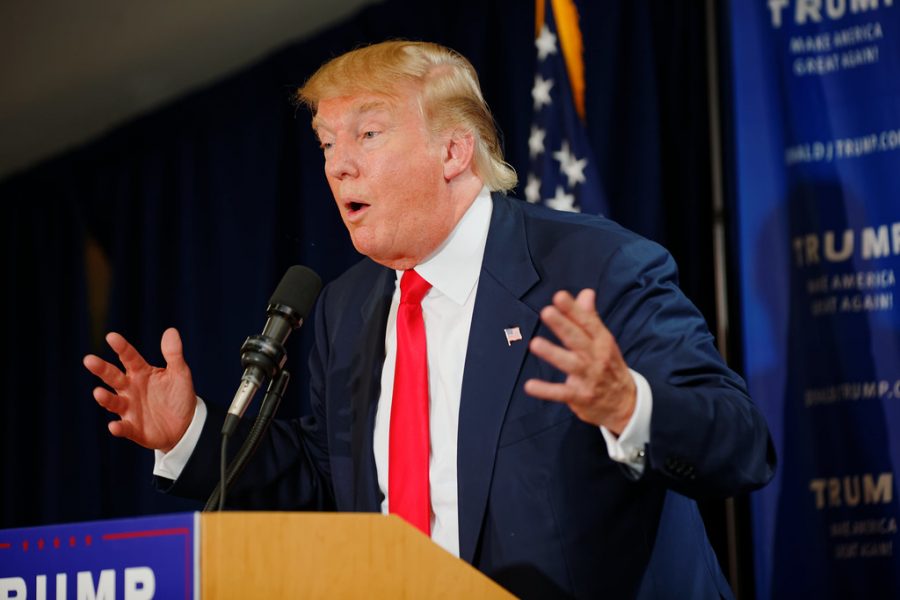The Intricacies of Impeachment
Michael Scott Vadon [email protected] 201-790-7758
Two weeks ago, Nancy Pelosi (Speaker of the House) announced the Impeachment Inquiry of President Donald Trump. However, the public at large does not realize the full scope of the issues and how impeachment works. Image by Michael Vadon.
Recently, every news outlet has been swarmed with one word: impeachment. On July 25th, 2019, President Donald Trump was on a phone call with Ukraine’s president, Volodymyr Zelensky, where he asked him to look into the history of former Vice President and current 2020 Democratic Presidential candidate Joe Biden and his son, Hunter Biden. Since then, a whistle-blower complaint has come out stating that President Trump might have pressured Zelensky or blackmailed him into fulfilling his request. With the whistle-blower complaint come to light, on September 25th, Speaker of the House Nancy Pelosi declared an impeachment inquiry on Trump’s actions. The question remains: what actually is impeachment, and what does it mean for the president?
A common misconception about impeachment is that if someone is impeached, they are removed from office. Impeachment is simply when a legislative body, in this case the U.S. House of Representatives, files charges against a public or government official, in this case President Trump. Grounds for impeachment comes from the U.S. Constitution, specifically Article II, Section 4, which states that public officials can be impeached for conviction of “Treason, Bribery, or other high Crimes and Misdemeanors.” The grounds for the current proceedings are on the conviction that President Trump used his executive power for his own political gain, in this case asking a foreign official to find dirt on a political rival.
When it comes to federal impeachments, the House of Representatives starts the process by declaring an official impeachment inquiry, which simply calls for an official investigation by House subcommittees to determine if there are any articles for impeachment. If some are found, then the House as a whole votes whether or not to impeach. All that’s required is a simple majority‒or more than 50%‒and the official impeachment begins. Then the inquiry is handed over to the U.S. Senate, who hold an impeachment trial to determine if the accused is actually guilty and if they should be removed from office. The Chief Justice of the Supreme Court presides over the trial, and two-thirds of the Senate is required to vote the official out of office.
Impeachment is most commonly associated with Presidents, but any federal government official can be impeached. In U.S. history, 15 federal judges, 1 cabinet secretary, and 1 U.S. Senator have been impeached. Only 2 Presidents have been impeached: Andrew Johnson in 1868 was charged with 11 high crimes and misdemeanors for his violation of the Tenure of Office Act, and Bill Clinton in 1998 was charged with lying under oath and obstruction of justice during a sexual harassment lawsuit. While both Johnson and Clinton were formally impeached by the House, both were acquitted by the Senate and were not removed from office. President Nixon is also associated with impeachment, although he was never formally impeached. Nixon resigned from office after 3 articles of impeachment were drawn up after the Saturday Night Massacre of the Watergate scandal. He was charged with obstruction of justice, abuse of power, and contempt of Congress, but resigned before the House could officially vote to impeach him. It is generally believed that had he not resigned, he would have been impeached by the House and removed from office by the Senate.
The question remains: will President Trump be the 3rd president to be impeached? And if the House is able to impeach him, will the Republican-dominated Senate vote to convict him? Only time will tell.












